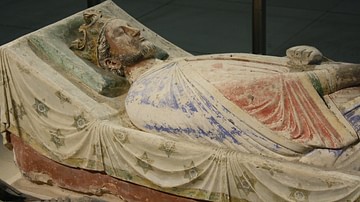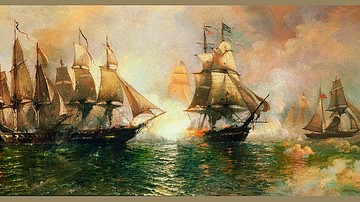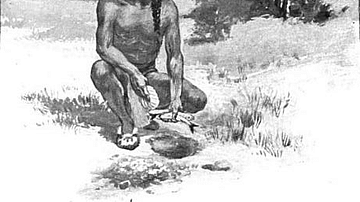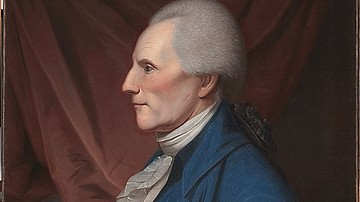Search
Remove Ads
Advertisement
Summary 
Loading AI-generated summary based on World History Encyclopedia articles ...
Search Results

Definition
Richard III of England
Richard III of England ruled as king from 1483 to 1485 CE. Richard succeeded Edward V of England (r. Apr-Jun 1483 CE), the son of Edward IV of England (r. 1461-1470 CE & 1471-1483 CE) in mysterious circumstances. The young Edward V and his...

Definition
Richard, Duke of York
Richard, 3rd Duke of York (l. 1411-1460 CE) was the richest man in England and one of the nobles who sparked off the Wars of the Roses (1455-1487 CE), a dynastic dispute that rumbled on for four decades between several English kings, queens...

Definition
Richard I of England
Richard I of England, also known as Richard the Lionheart (Cœur de Lion), reigned as king of England from 1189 to 1199. The son of Henry II of England (r. 1154-1189) and Eleanor of Aquitaine (c. 1122-1204), Richard was known for his courage...

Definition
Samuel
Samuel is a character in the Hebrew Bible and the Old Testament, uniquely depicted as having served several roles, as judge, military leader, seer, prophet, kingmaker, priestly official, and loyal servant of Yahweh. He is traditionally thought...

Definition
Richard II of England
Richard II of England reigned as king from 1377 to 1399 CE. The son of the late Edward the Black Prince (1330-1376 CE), Richard would succeed his grandfather Edward III of England (r. 1327-1377 CE), but as he was only 10 years of age, he...

Article
Battle of Lake Erie
The Battle of Lake Erie (10 September 1813), also known as the Battle of Put-in-Bay, was a decisive naval engagement in the War of 1812. It saw a squadron of US ships, under Oliver Hazard Perry, defeat a British squadron near Put-in-Bay...

Article
Sources of History
History (from the Greek ἱστορία, meaning 'a learning or knowing by inquiry') can be broadly taken to indicate the past in general but is usually defined as the study of the past from the point at which there were written sources onwards...

Article
Squanto in the Primary Sources
Squanto (l. c. 1585-1622 CE) is the best-known Native American of the pilgrim narrative, famous for helping the Plymouth Colony survive in 1621 CE. He makes up what scholar Charles C. Mann calls the “uneasy triumvirate” of Native Americans...

Lesson
Historical Bias in Ancient Sources
In this lesson plan, students will learn about historical bias in ancient sources based on the example of Herodotus. Essential Questions What is historical bias, and how can it affect our understanding of past events? How do the perspectives...

Definition
Richard Henry Lee
Richard Henry Lee (1732-1794) was an American politician from Virginia, who played a significant role in the American Revolution (1765-1789), particularly in the push for independence. A member of the prominent Lee family of Virginia, he...